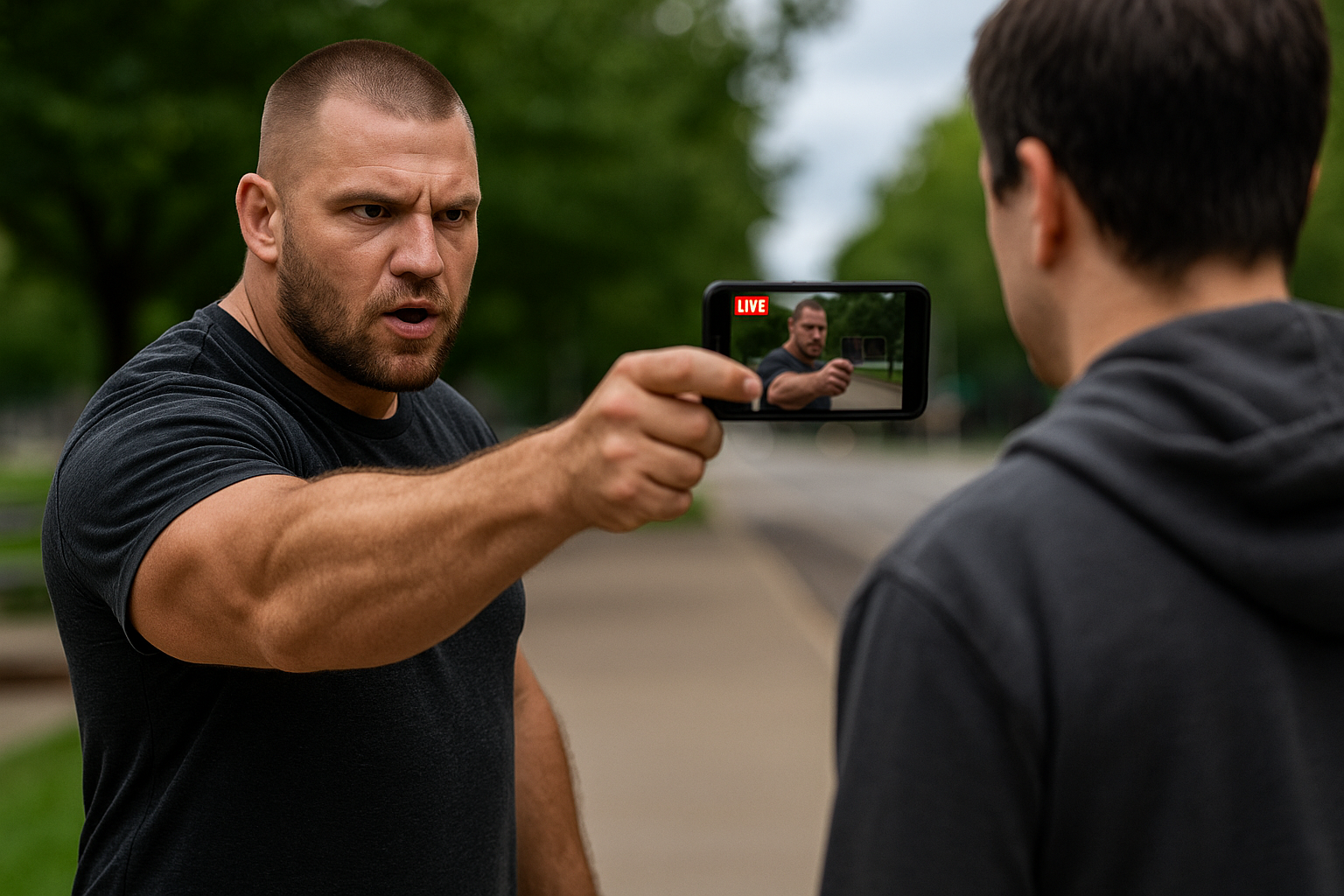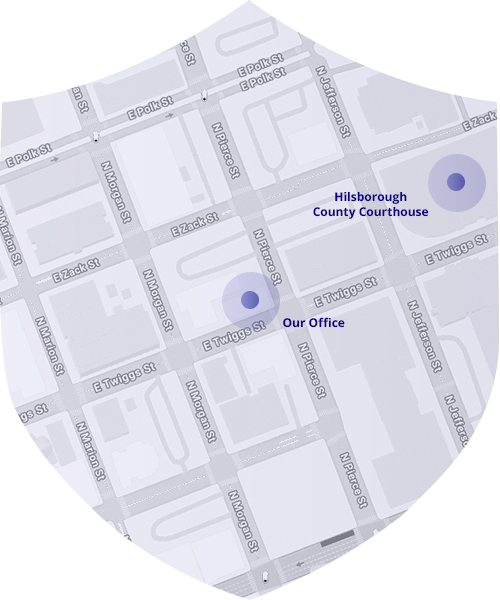- Free Consultation 24/7: (813) 727-7159 Tap Here To Call Us
Vigilante Predator Catcher Defense in Florida

When Private Citizens Conduct Online Stings | State Actor Defense
Vigilante predator catchers have become a growing phenomenon across Florida. These private citizens pose as underage decoys online, arrange public meetups, and then ambush individuals on camera—often streaming the confrontation live on social media. While some claim to act in the public interest, many are doing it for views, clicks, and income.
| What Are Vigilante Predator Catchers? Vigilante predator catchers are private citizens who pose as minors online, engage in conversations with adults, arrange in-person meetings, and then confront and record the individual—often for social media content. Unlike law enforcement, they operate outside legal procedures, are not trained in evidence preservation, and may have financial incentives (YouTube revenue, donations, merchandise) that compromise their methods. When police coordinate with or encourage these groups, the vigilante may become a “state actor” subject to constitutional constraints. |
If you have been targeted by one of these groups, you must take immediate action. These stings raise serious legal questions—and may be vulnerable to challenge. At The Brancato Law Firm, P.A., I have over 25 years of experience defending sex crimes cases and have tried well over 100 jury trials. I understand how to challenge improper evidence, raise entrapment defenses, and expose vigilante tactics that violate your rights.
Who Are These Vigilante Predator Catchers?
One of the most visible groups in Florida is 561 Predator Catcher (561 PC), run by South Florida MMA fighter Dustin Lampros. His group, like others across the state, uses decoy social media accounts and aggressive public confrontations—usually with a camera rolling.
But this is not law enforcement. These are private citizens who operate outside standard legal procedures.
Not Everyone Is Doing It for Justice
Many vigilante catchers are not working with police, and they are not following any legal or ethical standards. For some, this is a full-time job. They monetize their content through:
- YouTube ad revenue
- TikTok and Instagram views
- Merchandise sales and donations
When personal profit becomes the motive, corners get cut. Conversations get edited. Context gets ignored. And that is where a strong legal defense can make all the difference.
When a Vigilante Becomes a “State Actor”
Generally, private citizens are not held to the same constitutional standards as law enforcement. They do not have to read Miranda rights. They are not trained in evidence preservation. And they are not required to avoid entrapment.
But that changes when police become involved:
| Situation | Legal Consequence |
| Police encourage, approve, or coordinate with the vigilante group | Vigilante may be treated as a state actor; Fourth Amendment applies |
| Police continue to benefit from stings while ignoring improper methods | Court may suppress evidence; entrapment defense strengthened |
| Police provide information, resources, or direction to the group | Vigilante becomes government agent; constitutional protections apply |
| Vigilante acts completely independently with no police involvement | Constitutional constraints may not apply—but other defenses remain |
When the court treats a vigilante as a government agent, powerful defenses become available—including entrapment, unlawful seizure, and suppression of improperly obtained evidence.
| What If They Did Not Call Police? Many vigilante groups confront someone and walk away without calling law enforcement—especially if the footage is already posted online. But this does not mean you are safe. Police may still investigate if the video goes viral, a viewer reports it, or the group turns over information later. This is your window to act. Contact a qualified attorney immediately—early intervention could stop the case before it starts. |
Entrapment Defense in Florida
Florida follows a subjective entrapment standard. Under Florida Statute 777.201, your defense may succeed if:
- You were not already inclined to commit the offense, and
- The decoy’s conduct induced you to do something you would not have done otherwise
This is especially relevant when the vigilante pushed hard to steer the conversation, introduced sexual topics, or persisted despite your hesitation. If police encouraged or coordinated with the group, the entrapment defense becomes even stronger.
Defense Strategies Against Vigilante Stings
| Defense | How It Applies |
| Entrapment | The decoy induced you to commit conduct you were not predisposed to commit. Florida’s subjective standard focuses on your state of mind. |
| State Actor Doctrine | If police coordinated with, encouraged, or benefited from the vigilante’s methods, constitutional protections apply. Evidence may be suppressed. |
| Edited or Incomplete Evidence | Vigilantes often edit footage for maximum impact. Missing context, deleted messages, and selective presentation can be challenged. |
| Lack of Intent | You never intended to engage in unlawful conduct. Curiosity, confusion, or misunderstanding is not criminal intent. |
| Chain of Custody Issues | Vigilantes are not trained in evidence preservation. Digital evidence may be compromised, altered, or unreliable. |
Frequently Asked Questions
Can vigilante predator catchers legally confront people?
Private citizens are generally not bound by the same constitutional constraints as police. However, if they coordinate with law enforcement or police benefit from their methods, they may be treated as state actors—opening the door to constitutional defenses.
Can I be arrested based on vigilante footage?
Yes. Police may investigate and file charges based on footage, chat logs, or tips from vigilante groups. However, this evidence is often incomplete, edited, or improperly preserved—creating opportunities for defense.
What if the vigilante group never called police?
You are not necessarily safe. Police may still investigate if the video goes viral or a viewer reports it. This is your window to act—contact an attorney immediately to protect your rights before charges are filed.
Is entrapment a valid defense against vigilante stings?
Yes. Florida follows a subjective entrapment standard under F.S. 777.201. If you were not predisposed to commit the offense and the decoy induced your conduct, entrapment may apply—especially if police were involved.
Do vigilantes have to preserve evidence properly?
No. Vigilantes are not trained in evidence preservation and often edit footage for social media impact. This creates chain-of-custody issues and opportunities to challenge the reliability of their evidence.
Targeted by a Vigilante Predator Catcher?
If you were targeted by a vigilante predator catcher in Florida, you may still be able to avoid arrest. But time is critical. At The Brancato Law Firm, I personally oversee every sex crime case and have tried well over 100 jury trials. If there is a way to prevent charges—or get them dismissed—I will find it.
Call (813) 727-7159 for a Confidential Consultation
620 E. Twiggs Street, Suite 205, Tampa, FL 33602
Serving Hillsborough, Pinellas, and Pasco Counties

















